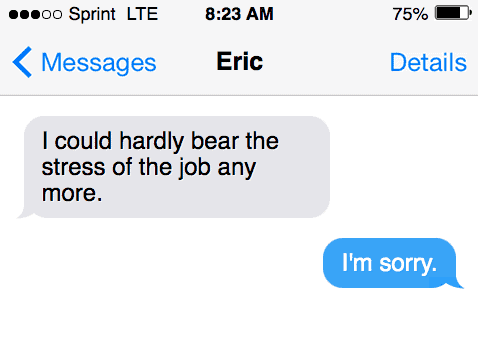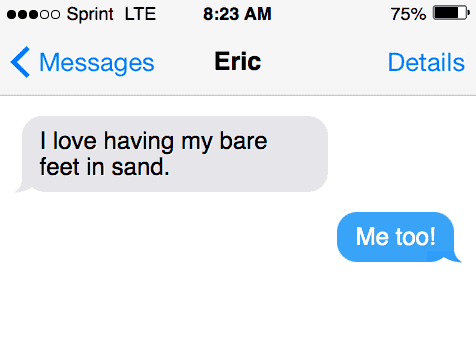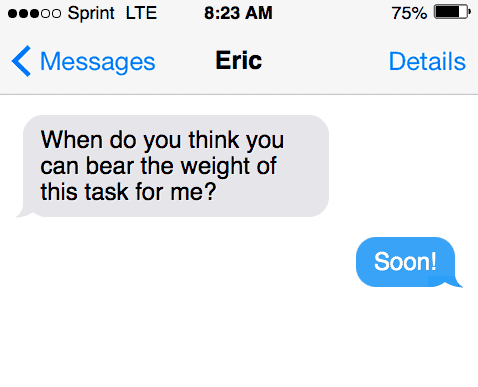To bear weight on my foot. To bare the weight. Is it bear weight or bare weight? What if I want to say that something is the bare minimum? The verb “bear” can be confusing in this phrase since the word “bear” typically refers to an animal. Learn how to correctly say this common phrase and expression in this short guide.
“Bare with me” or “bear with me”
Another common expression is “bear with me.” This expression is used to express time and patience. For example, “It will be here shortly, bear with me for a moment.”

The ‘bear’ homophone
The verb ‘bear’ is a homophone (homophones are words that sound the same and are spelled the same, but have different meanings.) In this sense, the verb ‘bear’ refers to being able to endure or tolerate a tough situation. This should not be confused with the noun ‘bear’, like a Polar bear, (the white furry, carnivorous mammal that lives in the Arctic).
The meaning of “bare”
When speaking about something as “bare,” it typically refers to the adjective definition of the word. Or to be “mere or minimum.” When using the word “bare,” think of quantity or lightness.
For example, taking something down to its minimum parts would be considered “taking it down to its bare minimum parts.”
The meaning of “bear”
The meaning of “bear” as an intrasitive verb means to “support a weight or strain.” The confusion of the word is often in the noun version, which refers to the family of mammals known as bears.
For example, the support of weight or the “right to bear arms.” Or, “I had to bear the cost of the job.”
“Bear” vs “bare”
To understand the difference between “bear” and “bare,” let’s look at a few example sentences to get the idea.

Examples of “bear” in common use
These examples give us an idea of how “bear” gets used in multiple ways in the American English language. For example, “to carry a burden” could mean to “bear” the weight of something.
“Bear” as a verb describing burden
“Josh is the company’s CEO and must bear a heavy load of stress for the job.”
As “bore” the past tense form
“She bore multiple children that year.”
What is past tense?
The act of display
“The scar on his hand bears repeating.”
“Borne” the past perfect form
“The man had borne the brunt of all of the work.”
What is past perfect?
Describing the large animal
“There are lots of black bear in the north woods of California.”
As a verb describing the state of being
“The president spoke of our right to bear arms in this country.”
Examples of “bare” in common use
Bare is commonly used as a verb. Although, it can be used as a literal adjective, figurative adjective, and past participle in a sentence, too. Making it complicated to fully understand how to use it in writing.
For example, “I’m going to craft the pottery myself with my bare hands.” Or, “I will strip the vehicle down to its bare bones and rebuild the automotive.”

As a literal adjective
“The feeling of walking on the warm stone in my bare feet is something I will never forget.”
As a past participle
“The large mammal that bared its teeth to us was a grizzly bear.”
What is a past participle?
As a verb
“The singer was going to bare his entire being into the new instrument.”
Key difference
“Bare” means unadorned or minimum. Most commonly used in verb form when writing expressions of something being minimal. For example, “I am going to bare my soul into this project. It must succeed.”
“Bear” means to carry or endure. Typically used in the verb form describing stress or strain. For example, “I simply cannot bear the burden of this situation any longer.”
Easy trick to remember which form to use
To become a better writer, using the correct form of “bear” and “bare” is essential. To remember which verb to use, think of bare as revealing something. If not getting used to reveal or uncover, it’s likely that “bear” is better to use.
For example, “The tree bears luscious fruit for us to harvest.” Or, “I had to strip off my shirt and reveal my bare skin for the doctor to continue the procedure on me as a patient.”

Alternatives to “bear” as a verb
Other common phrases to use to avoid making grammar mistakes with “bear.”
Unsustainable. It’s possible to refer to something as “unsustainable.” Rather than “bear the weight.” For example, “It was unsustainable for me to continue working at the stressful job.”
Endure. Another way to refer to something as being heavy or stressful. For example, “I can no longer endure this pain.”
Sources
- Past tense | LearnEnglish
- Past Perfect tense – Grammar – EnglishClub
- What Is A Past Participle? Definitions & Examples
- Bear Definition & Meaning – Merriam-Webster
- Bare Definition & Meaning – Merriam-Webster
Inside this article
Fact checked:
Content is rigorously reviewed by a team of qualified and experienced fact checkers. Fact checkers review articles for factual accuracy, relevance, and timeliness. Learn more.
Core lessons
Glossary
- Abstract Noun
- Accusative Case
- Anecdote
- Antonym
- Active Sentence
- Adverb
- Adjective
- Allegory
- Alliteration
- Adjective Clause
- Adjective Phrase
- Ampersand
- Anastrophe
- Adverbial Clause
- Appositive Phrase
- Clause
- Compound Adjective
- Complex Sentence
- Compound Words
- Compound Predicate
- Common Noun
- Comparative Adjective
- Comparative and Superlative
- Compound Noun
- Compound Subject
- Compound Sentence
- Copular Verb
- Collective Noun
- Colloquialism
- Conciseness
- Consonance
- Conditional
- Concrete Noun
- Conjunction
- Conjugation
- Conditional Sentence
- Comma Splice
- Correlative Conjunction
- Coordinating Conjunction
- Coordinate Adjective
- Cumulative Adjective
- Dative Case
- Determiner
- Declarative Sentence
- Declarative Statement
- Direct Object Pronoun
- Direct Object
- Diction
- Diphthong
- Dangling Modifier
- Demonstrative Pronoun
- Demonstrative Adjective
- Direct Characterization
- Definite Article
- Doublespeak
- False Dilemma Fallacy
- Future Perfect Progressive
- Future Simple
- Future Perfect Continuous
- Future Perfect
- First Conditional
- Irregular Adjective
- Irregular Verb
- Imperative Sentence
- Indefinite Article
- Intransitive Verb
- Introductory Phrase
- Indefinite Pronoun
- Indirect Characterization
- Interrogative Sentence
- Intensive Pronoun
- Inanimate Object
- Indefinite Tense
- Infinitive Phrase
- Interjection
- Intensifier
- Infinitive
- Indicative Mood
- Participle
- Parallelism
- Prepositional Phrase
- Past Simple Tense
- Past Continuous Tense
- Past Perfect Tense
- Past Progressive Tense
- Present Simple Tense
- Present Perfect Tense
- Personal Pronoun
- Personification
- Persuasive Writing
- Parallel Structure
- Phrasal Verb
- Predicate Adjective
- Predicate Nominative
- Phonetic Language
- Plural Noun
- Punctuation
- Punctuation Marks
- Preposition
- Preposition of Place
- Parts of Speech
- Possessive Adjective
- Possessive Determiner
- Possessive Case
- Possessive Noun
- Proper Adjective
- Proper Noun
- Present Participle
- Prefix
- Predicate



